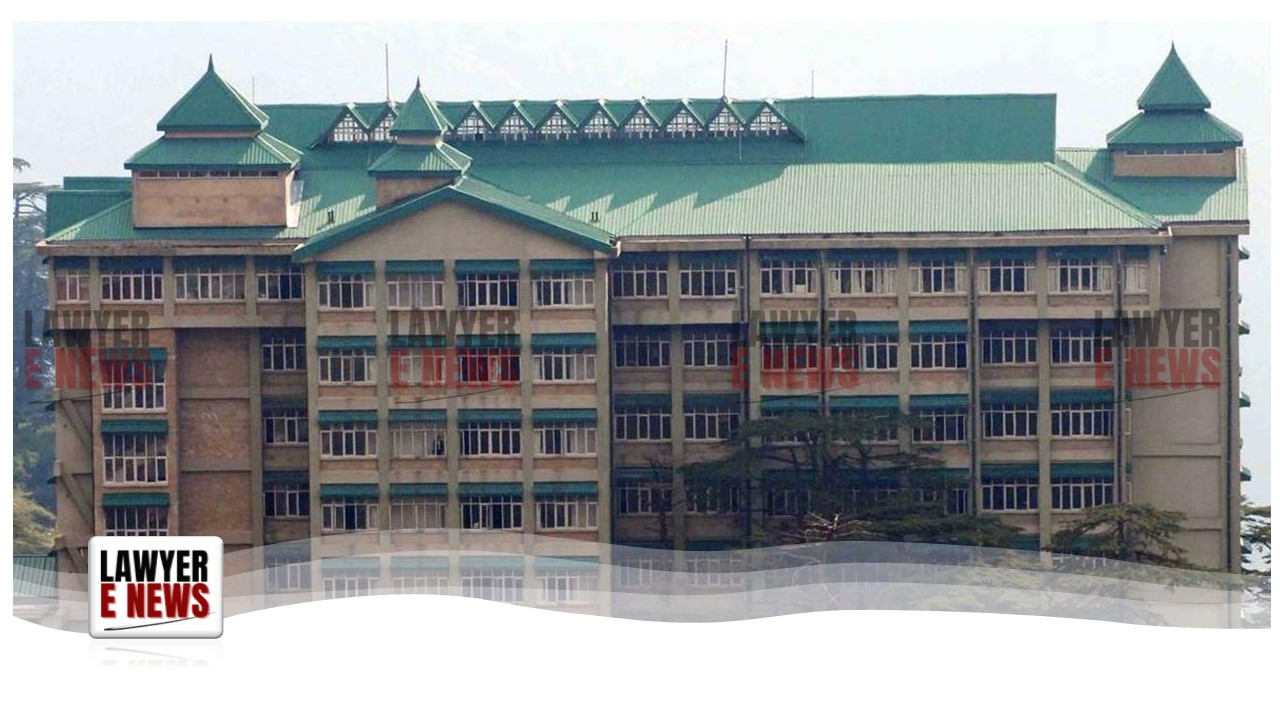-
by Admin
15 February 2026 2:36 AM



Appeal dismissed; State directed to initiate proper land acquisition procedures and compensate landowners.
In a significant ruling, the Himachal Pradesh High Court has dismissed an appeal by the State challenging the judgments of the lower courts regarding the unauthorized use of private land for road construction. The judgment, delivered by Justice Ajay Mohan Goel, underscores the legal necessity for due process in land acquisition and the obligation of the State to compensate landowners appropriately.
The case revolves around the construction of the Auhar-Kohina road, where the landowners, led by Hari Ram, claimed that their land was used without consent and without following the due legal process of acquisition. The respondents filed a suit for possession, permanent, and mandatory injunction against the State, which admitted to utilizing the land but argued it was done with the oral consent of the landowners. The trial court ruled in favor of the respondents, directing the State to acquire the land legally and compensate the owners. The High Court upheld this decision, leading to the State’s appeal.
Justice Ajay Mohan Goel emphasized the State’s obligation to follow legal procedures in land acquisition. The court found that the State had issued a notification under Section 4 of the Land Acquisition Act but did not complete the subsequent steps, leading to the notification lapsing. “The State cannot utilize private land without compensating the owner in accordance with law,” noted the court.
The State’s defense that the land was used with oral consent from the landowners was rejected. The court highlighted the necessity of written consent or formal acquisition. “The defendants failed to demonstrate that the land was utilized on a consensual basis. No written consent was produced,” the judgment stated.
The judgment reiterated the principle that public use of private land must comply with statutory requirements, including proper acquisition and compensation. “Construction of a public road, while in public interest, does not exempt the State from following due legal processes,” the court observed. The lower courts’ findings that the State acted unlawfully were upheld, as there was no substantial question of law involved.
Justice Goel remarked, “It is settled law that the State cannot be allowed to utilize the property of an individual without compensating him in accordance with law. None can be allowed to utilize the property of another except in accordance with law.”
The High Court’s dismissal of the State’s appeal reinforces the judiciary’s commitment to upholding the legal rights of landowners and the necessity of due process in land acquisition. This judgment sends a clear message that public interest projects do not override the requirement for lawful acquisition and fair compensation. The ruling is expected to have a significant impact on future cases involving land acquisition for public use, ensuring that the rights of landowners are protected.
Date of Decision: July 02, 2024
